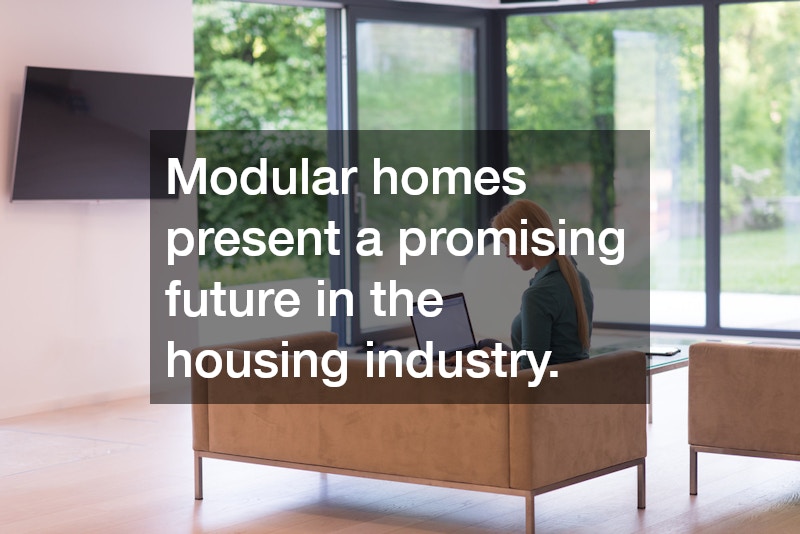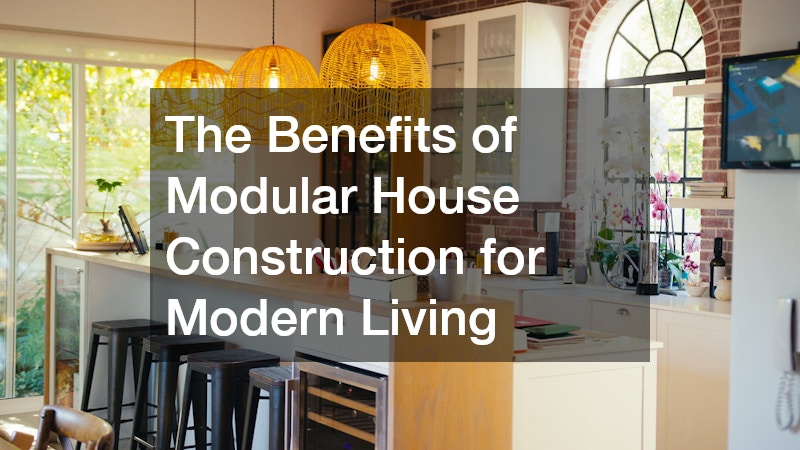Explore the transformative impact of modular house construction and its growing appeal in modern living. Modular homes offer innovative solutions to traditional construction challenges, promising speed, sustainability, and customization. By utilizing precision engineering and factory-controlled environments, these homes minimize delays caused by weather, labor shortages, or inconsistent materials.
The process not only accelerates project timelines but also reduces waste, making it an eco-friendly choice for environmentally conscious homeowners.
In addition, modular construction allows for a high level of personalization, giving buyers the freedom to design layouts, select finishes, and integrate modern energy-efficient features that match their unique preferences. With improved durability and adherence to strict building codes, these homes meet or even exceed the quality standards of conventional builds. As housing demands continue to evolve, modular homes stand out as a flexible, cost-effective, and future-ready option—shaping the way communities think about construction, homeownership, and sustainable development.
Why is Modular Construction More Time Efficient?
Reduction of Construction Time
Modular construction significantly reduces building time by allowing the bulk of the work to happen off-site in controlled factory settings. This method enables the site preparation and construction to occur simultaneously, slashing the overall project timeline in half.
With weather-related delays minimized, teams can stick to tighter schedules, ensuring timely project delivery. This efficiency allows homeowners to move into their new homes much faster compared to traditional builds.
The predictable nature of modular construction timelines creates a smoother experience for everyone involved. Contractors can manage resources with greater confidence, resulting in fewer disruptions in the building process.
Efficient Project Management
Streamlined processes inherent in modular construction boost project management efficiency. By adopting standardized practices and utilizing advanced technologies, modular builds can be better coordinated.
As the assembly is done off-site, managers can oversee progress remotely, which increases oversight and reduces supervisory costs. The implementation of efficient scheduling is imperative to meet tight deadlines, showcasing the value of seasoned project management teams.
Effective communication strategies become even more critical as teams work across multiple locations. This aspect ensures that project goals are met while optimizing timelines and costs.
How Does Modular Housing Promote Sustainability?
Eco-Friendly Building Materials
Modular construction often employs eco-friendly materials that contribute to a smaller environmental footprint. Recycled and renewable resources are frequently chosen, which promotes sustainable building practices.
The utilization of such materials not only reduces the impact on natural resources but also enhances indoor air quality. Thus, future occupants are fostered with a healthier living environment, contributing to a higher overall standard of living.
Moreover, these materials can help achieve certifications like LEED, which affirm a building’s sustainability credentials. Modular homes appeal to eco-conscious buyers seeking to minimize their environmental impact.
Reduced Waste and Energy Efficiency
Modular construction drastically minimizes waste compared to traditional methods thanks to precise factory production. Any surplus materials left over from production can often be recycled or repurposed.
The energy required for construction is significantly lessened, decreasing the emissions typically associated with the building industry. Energy-efficient designs and features are more easily incorporated at the factory level, maximizing the home’s sustainability from the ground up.
Furthermore, modular homes tend to consume lower amounts of energy during occupancy, resulting in lower utility bills for homeowners. These benefits make modular housing an attractive, eco-friendly choice for modern living.
Are Modular Homes Cost-Effective?
Initial Investment and Long-Term Savings
While the initial investment for modular homes can be similar to traditional buildings, the long-term savings are considerable. Reduced construction times translate to lower labor costs, which benefit the overall budget significantly.
Additionally, energy-efficient features incorporated into the design help reduce utility expenses over time. This economic advantage accumulates over the years, leading to substantial savings for homeowners.
Historically, modular homes have demonstrated endurance in market fluctuations, maintaining their value while providing cost-efficiency. Homeowners appreciate the financial security that this construction method represents.
Value Retention and Resale Opportunities
Modular homes possess a strong potential for value retention due to their innovative construction process. They are built to endure and age well, often resulting in comparable or even higher resale values than traditional homes.
As demand for sustainable and efficient living spaces grows, modular homes are becoming increasingly attractive real estate options. Buyers are eager to invest in dwellings that offer long-term benefits without sacrificing quality.
This growing desirability among consumers ensures that modular homes will continue to remain relevant, creating lucrative opportunities for resale. Thus, investing in a modular home can yield significant returns in the future.
The key benefits of modular house construction are clear: they offer new efficiencies, prioritize sustainability, and prove to be cost-effective. By revolutionizing modern living, modular homes present a promising future in the housing industry.
This construction method promises not only to address current challenges but also to pave the way for smarter, more sustainable home building practices. The streamlined process minimizes waste, reduces construction timelines, and provides greater flexibility in design, meeting diverse homeowner needs. As the industry continues to evolve, modular homes stand as a testament to innovation and progress, offering a practical solution for affordable, eco-friendly, and high-quality housing worldwide.

